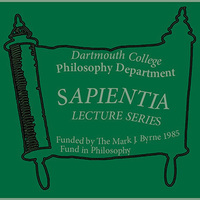Menu
- People
- Curriculum
- Foreign Study
- News & Events
Back to Top Nav
Daniel J. Singer (Penn). "Polarization, Forgetting, and a Computational Approach to Social Epistemology." Free & open to all. Reception follows.

Daniel J. Singer is Assistant Professor of Philosophy at the University of Pennsylvania, where he also direct the Computational Social Philosophy Lab with Patrick Grim. In Spring 2018, he is a Fellow of the Dartmouth Institute for Cross Disciplinary Engagement. His research is at the intersections of epistemology, ethics, and social philosophy. His work is motivated primarily by two questions: (1) how and why epistemic norms apply to us, and (2) how epistemic norms for groups differ from norms for individuals, investigating both questions using traditional philosophical methods as well as via agent-based computer simulations. He also uses agent-based computer simulations to investigate questions more squarely in political philosophy, social epistemology, and philosophy of science.
The Sapientia Lecture Series is funded by The Mark J. Byrne 1985 Fund in Philosophy.
Events are free and open to the public unless otherwise noted.